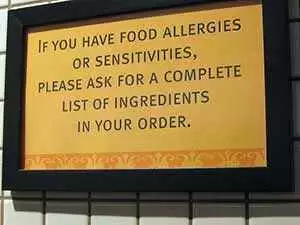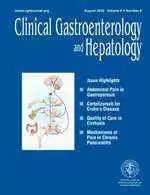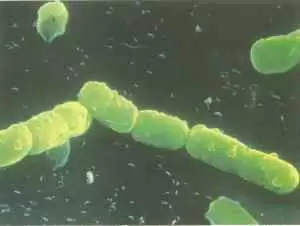Non-celiac wheat sensitivity (NCWS) is a newly described clinical condition marked by symptoms which may affect the gastrointestinal tract, the nervous system, the skin, and other organs.
 There is little data regarding the origins of NCWS, and it is likely that numerous factors influence the various clinical manifestations of the condition.
There is little data regarding the origins of NCWS, and it is likely that numerous factors influence the various clinical manifestations of the condition.
Celiac.com Sponsor (A12):
The one common thread in NCWS is wheat consumption. Symptoms disappear when wheat is eliminated from the diet, and reappear when wheat is consumed.
Looking into the possibility that their NCWS patients might in fact be suffering from non-immunoglobulin E (IgE)-mediated wheat allergy, a team of researchers conducted a review their own earlier data regarding NCWS, with a corresponding review of relevant medical literature on NCWS.
The research team included Antonio Carroccio, Pasquale Mansueto, Alberto D'Alcamo and Giuseppe Iacono. Together, they reviewed data on 276 patients diagnosed with NCWS by means of double-blind placebo-controlled (DBPC) wheat challenge.
They then examined data indicating a possible wheat allergy diagnosis, and reviewed other study data, along with the role of serum immunoglobulin G antibodies and the basophil activation assay in food allergy, and the histology findings in the food allergy diagnosis.
By comparing patients with NCWS and irritable bowel syndrome (IBS) against controls with non-IBS-related NCWS, the team determined that NCWS was marked by: food allergy in the pediatric age (0.01); coexistent atopic diseases (0.0001); positive serum anti-gliadin (0.0001) and anti-betalactoglobulin (0.001) antibodies; positive cytofluorimetric assay revealing in vitro basophil activation by food antigens (0.0001); and a presence of eosinophils in the intestinal mucosa biopsies (0.0001).
Patients with NCWS and multiple food sensitivity show several clinical, laboratory, and histological characteristics that suggest they might actually be suffering from non-IgE-mediated food allergy.
This is potentially very interesting news regarding NCWS, but the team does note that other pathogenic possibilities need to be considered and investigated before this can be confirmed.
Source:
- Open Original Shared Link










Recommended Comments